Buying a house vs renting — Comparing the benefits of buying your home or renting. If you can keep your mortgage relatively the same as rent, there is a clear winner.
My original plan was to rent for cheap and build up dividend income until it covers my expenses.
However, the pandemic and a recent experience with renting made me change my perspective.
Because of the pandemic, I now need a larger space to work from home. Otherwise, my landlord is considering a sale of the unit I am renting. If that was to happen, I would have 60 days to move out.
This is not an ideal situation with Christmas on the horizon. Furthermore, it makes my life feel unstable. I’m tired of renting and moving all the time.
As such, I am revisiting the buying a house vs renting dilemma.
In this article, I will look at the advantages of buying a house vs renting for financial independence seekers.
Let’s dive in.
Buying A House Vs Renting Premise
In short, it makes more sense to buy than rent because you add another asset to your portfolio.
On the other hand, renting makes more sense if you can keep your costs lower and invest an amount of money that is equivalent to a mortgage payment into the stock market each month.
But the best case scenario is keeping your mortgage payment the same as your rent and continue to invest into stocks.
Buying A House Vs Renting — Reasons To Buy
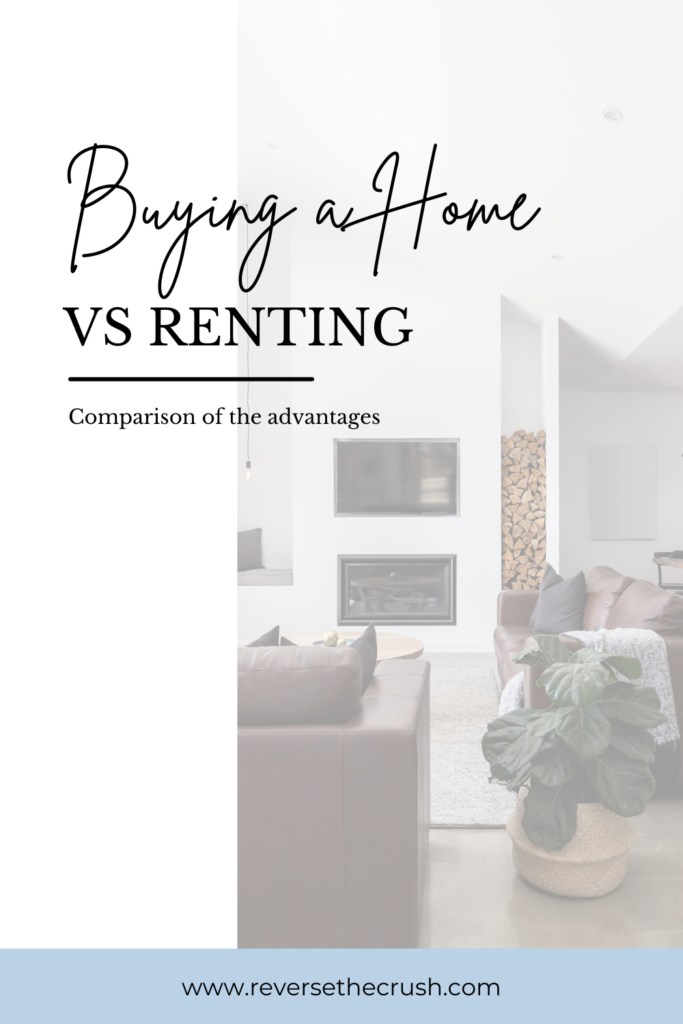
Buying A House Vs Renting — Reasons To Buy
You Need A Place To Live
At the end of the day, it makes sense to buy because you need a place to live.
If a mortgage payment costs $2,500 and renting costs $2,000 per month, the cost of a mortgage is not $2,500. The cost is really only $500, because you would have been spending that money on rent anyways.
So, if you can keep the mortgage payment relatively the same as renting, it makes more sense to buy.
It just depends on not over extending yourself and obtaining a reasonable mortgage within your means.
Owning A Home Boosts Net Worth
In my view, net worth is an empty number.
For example, if you have a high net worth because of the home you own, to access that net worth, you have to sell your home.
That’s why I believe income and cash flow matter the most. A person with even $25k in more liquid investments may have more flexibility than a home owner.
If a person that owns a home was to lose their job, without savings, they have to sell their home to access that net worth. In this scenario, the individual with a net worth of $500,000 could be in a less flexible position than a person with a 25K net worth in more liquid investments.
But if you can own a home and have investments on the side, owning a home is a great way to boost your net worth. If you are superficial and want to boast about how much you are worth, owning a home is the best way to go. The leverage provided through a mortgage is a way to quickly acquire a large asset.
Adds Another Asset To Your Portfolio
Diversification is especially important in overvalued markets.
If the bull market was to suddenly turn into a bear market, owning real estate could offset your unrealized losses in the stock market.
It also adds another non-financial asset to your investment mix.
For those who do not know, my long-term goal is to build a portfolio of equities worth between $400,000 to $800,000. Although I am comfortable with large fluctuations, I would be even more comfortable with another $500,000 invested in real asset.
You Have Something To Sell If You Move
If you currently rent, have you ever added up how much you have spent on rent?
The amount is sickening.
Worst of all, when you move, the money you spent on rent is gone forever.
Of course, you could argue that you were paying for a service. So, the money was spent on something valuable.
But if you own instead of rent, you have something to sell when you move.
Sense Of Pride
I think the main reason most people buy is for a sense of pride.
If you own a home, you get to tell people you bought a home.
It’s a status symbol as an adult like the ability to dress well is a status symbol when you are young.
You Cannot Be Kicked Out
I have been lucky to have some really great landlords in my time as a renter.
My first landlord after school hardly increased rent in 5 years. She hardly ever bothered me and was happy to have problem-free tenants.
That experience led to me favouring renting in the buying a house vs renting debate.
However, more recently, I was notified that I may have to move out because my landlord might sell the unit I’m in.
To put it bluntly, I am annoyed at how little control I have over the situation and I am tired of moving.
If you own a home, you don’t have to move unless you want to.
More Independence
Independence is extremely important to me.
It’s one of the reasons why I am pursuing financial independence.
Simply put, I want to make all of my own decisions and I don’t want to be told what to do.
If you own your home, you don’t have to ask your landlord if you can paint the walls or hang your own photos. You can do whatever you want.
Real Estate Is An Inflation Hedge
Whether you believe inflation is transitory or not, real estate is a great hedge against inflation.
Just look at what has happened to the prices of real estate in Canada over the past year.
Essentially, inflation can be a good thing if you own assets. But if you don’t own assets, you will watch your buying power erode.
A portfolio consisting of real estate, stocks, and Bitcoin is a good way to combat inflation.
You Will Eventually Reduce Housing Costs When The Mortgage Is Paid Off
Once you pay off your mortgage, you reduce your housing costs by a great deal.
Of course, there are still property taxes, maintenance, insurance, and potentially condo fees.
But overall, paying off a mortgage will make your housing costs substantially lower.
Although it could take up to 25 years pay off a mortgage, renting never ends.
Down the road, you may be able to retire with a smaller portfolio if you can pay off your mortgage.
Personally, I plan to pay off my mortgage with dividend income.
Even if the majority of my dividend income has to go towards my mortgage, at least I am transferring money from one asset to another asset.
You Don’t Have To Save For A House Anymore
For the past few years, I have been attempting to save for a house and invest at the same time.
But if I buy a house, I no longer have to worry about saving for a house.
I will be saving for a house through my mortgage payments and the rest of my disposable income can go to stocks.
All Your Income Is Going To Assets
As someone who lives a frugal lifestyle, I don’t really have many expenses.
Other than the cost of housing and food, I don’t really have much else to worry about besides saving.
I hardly even spend on transportation anymore because I work from home.
If I buy a house, practically all of my income will go towards assets.
The key is to avoid becoming house poor by overextending yourself.
As I alluded to before, if I can keep my mortgage payment around the same as rent, I will be able to continue investing a high percentage of my income into stocks.
The only difference will be that I will cease to pay rent. Instead of my housing costs going to rent, I will be building up equity via a mortgage.
Stability
My point about stability is similar to my point about getting kicked out.
However, stability cannot be understated.
Having a place that you can call home for the next decade is comforting.
It provides a foundation to build upon.
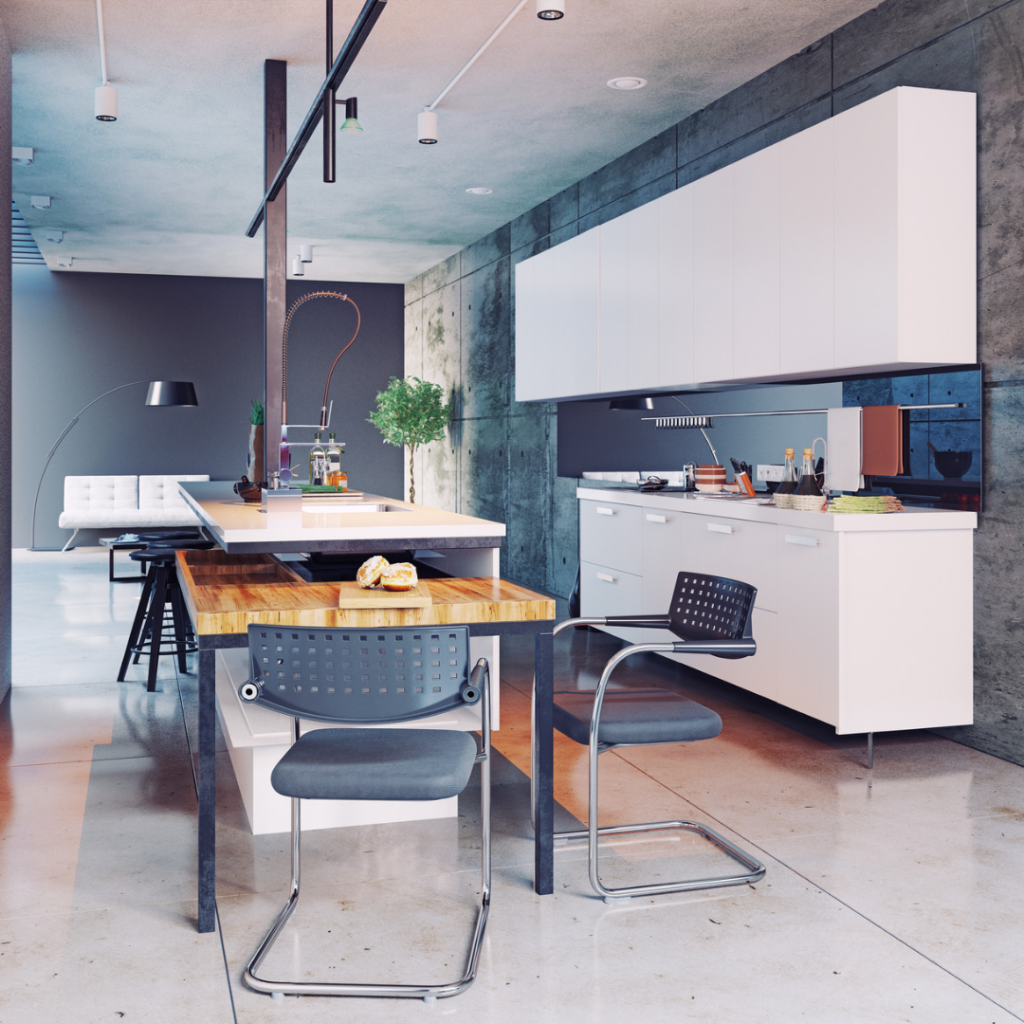
Buying A House Vs Renting — Reasons To Rent
With everything in life, there are tradeoffs.
Buying a house vs renting is no different.
Let’s see if there are more reasons to rent than buy.
It Is Typically Cheaper
One of the main reasons I used to prefer renting is because it is cheaper.
Simply put, there are no property taxes, lawyer fees, land transfer fees, and no down payment.
To rent, you just have to pay first and last month’s rent and you are good to go.
From a cash flow perspective, it makes a lot of sense.
The problem is that most people do not have the discipline to invest the difference they save by renting.
They end up wasting it on restaurants, furniture, cars or what have you.
Realistically, if you can rent for cheap and are willing to live well below your means, investing the difference might lead to financial independence faster.
Historically, the stock market grows faster than real estate. So, if you are fine with moving more frequently and if you can rent for cheap, renting will lead to having more disposable income to invest.
Less Responsibilities
Renting is a relatively problem-free way to live.
If something breaks, you just call your landlord.
On the other hand, if you are an owner, it is your responsibility to do everything.
Of course, you run the risk of having a bad landlord if you are a renter. But it is nice not having to worry about maintenance and repairs.
Flexibility To Move
A one year lease is a much smaller commitment than buying a house.
After the one year lease is over, you can switch to a month-to-month lease. So, you can easily leave your rental unit or house by simply giving 60 days notice.
If you own, the process becomes a lot more complex. You have to sell, which involves lawyers, lenders, and lots of other people with their hands out.
Overall, the process is more complicated and could take longer. It’s a much bigger commitment to move.
Doesn’t Require A Downpayment
One of the biggest downsides of owning a home is coming up with the downpayment.
Unless you get help from your parents, you basically have to give up your initial nest egg.
The downside is that your nest egg could compound for decades in the stock market.
Once you give up that nest egg, you might never financially recover.
It could take you another 5 plus years to get back to where you were.
In turn, early retirement could be out of reach.
Lower Emergency Fund Required
Another benefit of renting is that a lower emergency fund is required.
In short, you don’t need as cushy of an emergency fund because you don’t have to worry about maintenance or repairs.
Furthermore, you avoid property tax and other expenses related to having a mortgage.
As such, you can get away with a small 3 month emergency fund if you have a stable job.
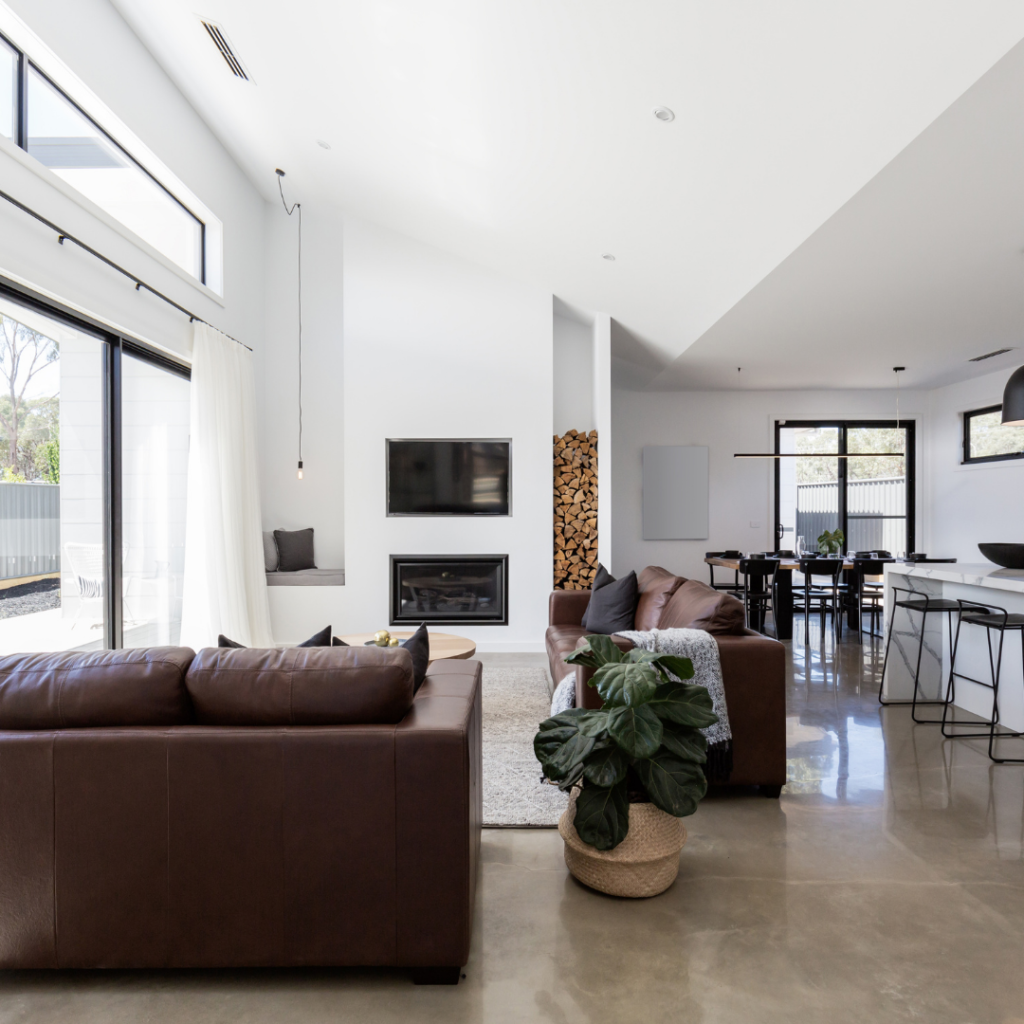
Buying A House Vs Renting – Final Thoughts
After going through the benefits of buying a house vs renting, it seems clear to me that the benefits of buying outweigh the benefits of renting.
Of course, it depends on what life stage you are in and how much of a down payment you have saved.
But if you have a down payment saved and you can keep putting at least 15% of your income towards investments at the same time, buying is clearly the way to go.
Related Posts To Buying A House Vs Renting
How To Save For a Down Payment On A House
How Much Should I Save To Move Out?
How Much Emergency Fund Should I Have?
Should You Pay Your Mortgage Off Early? How Paying Off Your Mortgage Early Gives You Fewer Options
Homes For Financial Independence – The Best Home And Living Situations For Early Retirement
I am not a licensed investment or tax adviser. All opinions are my own. This post may contain advertisements by Monumetric. This post may also contain internal links, affiliate links to BizBudding, Amazon, Bluehost, and Questrade, links to trusted external sites, and links to RTC social media accounts.
Connect with RTC
Twitter: @Reversethecrush
Pinterest: @reversethecrushblog
Instagram: @reversethecrush_
Facebook: @reversethecrushblog
Email: graham@reversethecrush.com
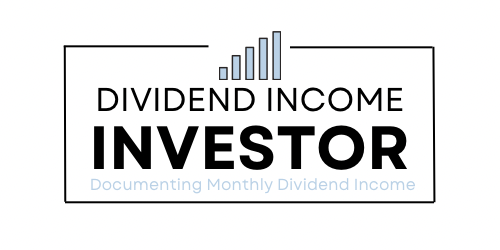
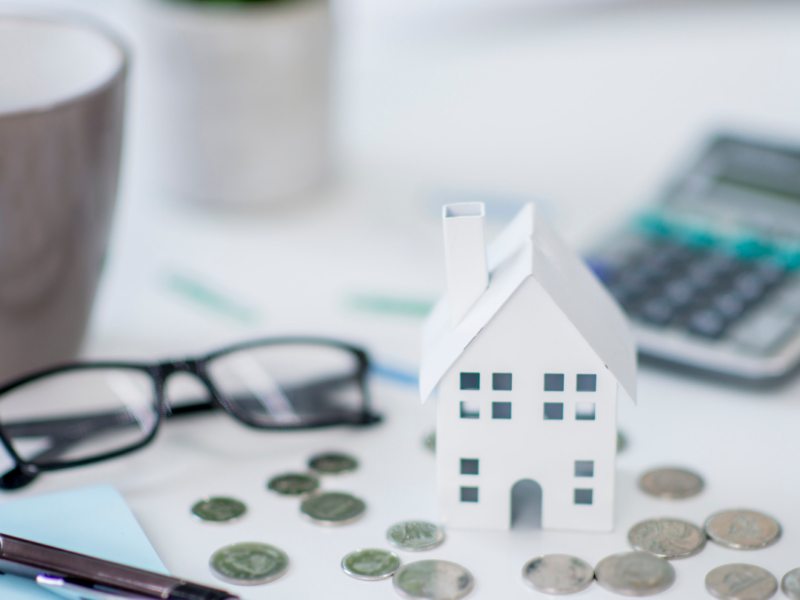
 Canadian Securities Course Benefits (CSC) — Is It Worth It?
Canadian Securities Course Benefits (CSC) — Is It Worth It?
